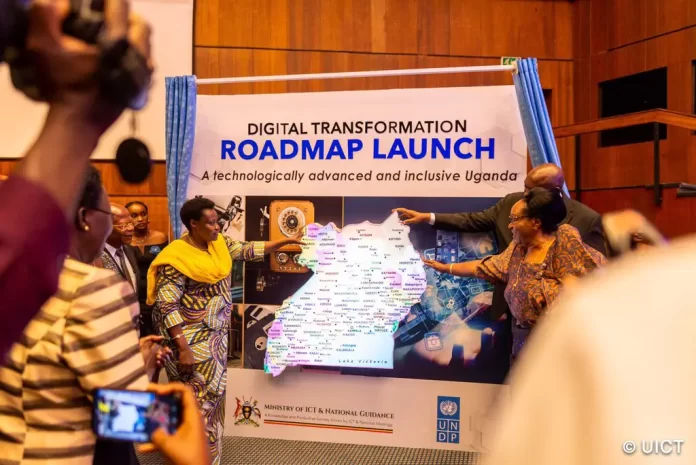
Uganda’s Digital Transformation Roadmap which is anchored in the Uganda Vision 2040, conceptualized to strengthen the fundamentals of the economy by harnessing the abundant opportunities around the country, including opportunities within the Information and Communications Technology (ICT) sector, is set to generate more employment opportunities for Ugandans.
Aminah Zawedde, the Permanent Secretary of the Ministry of ICT and National Guidance said that, Uganda’s current National Development Plan (NDP III) is heavily focused on increasing investment in ICT as one of the productive sectors able to enhance livelihoods, generate employment and produce goods for export and import substitution.
While presiding over the Digital Transformation Roadmap Launch on Thursday, August 17, 2023, at Hotel Africana in Kampala, Vice President Jessica Alupo confirmed that the country cannot avoid digital transformation, stating that, it’s the country’s future and many youths are waiting to secure jobs generated by the digital agenda.
Zawedde added that, the potential for economic growth and employment for Uganda’s young populace emanating from the full exploitation of the digital economy is limitless and must be proactively and aggressively pursued.
According to Minister John Chrysostom Muyingo, by incorporating digital skills into Uganda’s education curriculum, students are being prepared for tomorrow’s jobs and nurturing a generation of critical thinkers and problem solvers who can drive innovation across all sectors.
Chris Baryomunsi, the Minister of ICT and National Guidance said that, there is a lot that has to be achieved at the implementation of the Digital Transformation Roadmap including the creation of more employment opportunities, digital infrastructure, and connectivity, cyber security, data protection, and privacy, digital services, skills, and innovation and entrepreneurship, among others.
He also revealed that, the collaboration of different stakeholders will lead to the success of the Digital Transformation Roadmap.
“The success of this roadmap depends on the collaborative efforts of stakeholders such as government agencies, private sector partners, civil society, academia, and the general public,” he said.
He emphasized that it’s not just a roadmap but a commitment to a brighter future for Uganda and with determination and perseverance, the roadmap will be turned into a reality that benefits all Ugandans.














